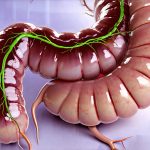The liver is often called the workhorse of the body, and for good reason. This incredible organ performs over 500 vital functions, ranging from filtering toxins and processing nutrients to producing essential proteins and regulating blood sugar levels. Its tireless efforts are fundamental to our overall well-being, yet it’s frequently overlooked until problems arise. Many factors can compromise liver health – excessive alcohol consumption, exposure to environmental toxins, certain medications, and even a consistently poor diet. Often, early stages of liver distress show few obvious symptoms, making preventative measures and proactive lifestyle changes crucial for long-term health. Understanding how dietary choices impact the liver is therefore paramount in supporting its function and minimizing risk.
A healthy liver isn’t simply about avoiding damaging substances; it’s also about actively nourishing this complex organ with the building blocks it needs to thrive. This means prioritizing a diet rich in antioxidants, anti-inflammatory compounds, and nutrients that support detoxification pathways. It’s about making informed food choices that reduce the burden on the liver, allowing it to efficiently perform its essential functions. While there’s no ‘magic bullet’ for liver health, incorporating specific dietary changes can significantly contribute to its resilience and overall function, even in the face of modern lifestyle challenges. This article will explore practical and evidence-based strategies for optimizing your diet to support a healthy liver.
Dietary Foundations for Liver Health
A cornerstone of liver support is adopting an anti-inflammatory dietary pattern. Chronic inflammation places a significant strain on the liver, potentially leading to cellular damage and hindering its ability to function optimally. This doesn’t necessarily mean eliminating all inflammatory foods overnight; it’s about shifting towards a predominantly anti-inflammatory approach. This involves prioritizing whole, unprocessed foods while minimizing processed foods, sugary drinks, and excessive amounts of saturated and trans fats. Focusing on food groups that naturally possess potent anti-inflammatory properties is key to long-term liver health.
Foods known to support liver function fall into several categories: cruciferous vegetables like broccoli and cauliflower (rich in compounds that aid detoxification), leafy greens packed with antioxidants, berries brimming with protective phytonutrients, fatty fish containing omega-3 fatty acids which reduce inflammation, and healthy fats from sources like avocados and olive oil. A diet rich in fiber also plays a crucial role – it aids in the removal of toxins through the digestive system, lessening the liver’s workload. Furthermore, adequate hydration is essential; water helps flush out toxins and supports all liver functions.
Consider this a holistic approach to nourishing your liver. It’s not about restrictive dieting but rather about building sustainable habits that promote overall well-being and minimize stress on this vital organ. A balanced diet is the most effective strategy for maintaining liver health, and it should form the foundation of any proactive lifestyle changes aimed at supporting its function. Remember, small consistent changes are far more impactful than drastic, short-lived efforts.
Foods to Embrace for Liver Support
One of the most accessible ways to support your liver is through mindful food choices. Here’s a deeper look at specific foods that provide significant benefits:
- Beets: These vibrant root vegetables contain betaine, a compound that helps protect the liver from damage and improve its detoxification processes. Beet juice can be incorporated into smoothies or enjoyed as a refreshing drink.
- Garlic & Onions: Both garlic and onions are rich in sulfur-containing compounds which assist with detoxification and support enzyme activation within the liver. They also contribute to glutathione production, a powerful antioxidant vital for liver health.
- Green Tea: Packed with catechins, green tea is known for its antioxidant properties and potential to reduce inflammation. While beneficial, it’s important to consume green tea in moderation due to its caffeine content.
- Citrus Fruits: Vitamin C rich citrus fruits like lemons, limes and oranges act as potent antioxidants protecting liver cells from oxidative stress. They also support the body’s natural detoxification pathways.
Beyond individual foods, focusing on dietary patterns like the Mediterranean diet – characterized by abundant fruits, vegetables, whole grains, lean proteins, and healthy fats – provides a comprehensive approach to liver health. This pattern naturally incorporates many of the beneficial compounds mentioned above, promoting overall well-being alongside specific liver support. Prioritizing food quality is essential, opting for organic options whenever possible to minimize exposure to pesticides and other potentially harmful chemicals.
Minimizing Liver Stressors Through Diet
Just as certain foods actively support liver health, others can contribute to its strain. Reducing or eliminating these stressors is a vital component of dietary intervention. Excessive sugar intake, particularly fructose found in sugary drinks and processed foods, is directly linked to non-alcoholic fatty liver disease (NAFLD). The liver processes fructose differently than glucose, leading to fat accumulation within the organ. Similarly, high levels of saturated and trans fats can overwhelm the liver’s processing capabilities, contributing to inflammation and potential damage.
Alcohol consumption, even in moderate amounts, places a significant burden on the liver. While complete abstinence may not be necessary for everyone, limiting alcohol intake is crucial for protecting liver health. Furthermore, excessive sodium intake can contribute to fluid retention and increased stress on the liver. Processed foods are often laden with sodium, making it important to read labels carefully and prioritize whole, unprocessed alternatives.
Here’s a simple step-by-step approach:
1. Reduce added sugar consumption by limiting sugary drinks, candies, and processed desserts.
2. Replace saturated and trans fats with healthy unsaturated fats found in avocados, olive oil, and nuts.
3. Limit alcohol intake or consider complete abstinence.
4. Reduce sodium intake by cooking at home and choosing low-sodium options.
The Role of Hydration & Gut Health
Adequate hydration is absolutely crucial for liver health. Water helps the liver flush out toxins, supports its metabolic functions, and prevents dehydration which can impair its ability to function effectively. Aim for at least eight glasses of water per day, adjusting based on your activity level and climate. Beyond water, herbal teas like dandelion root tea or milk thistle tea are sometimes used traditionally to support liver detoxification, though scientific evidence is still emerging.
The gut microbiome plays a surprisingly significant role in liver health. A healthy gut promotes efficient digestion and reduces the amount of toxins that reach the liver. Fiber-rich foods promote the growth of beneficial gut bacteria, while processed foods and antibiotics can disrupt the delicate balance of the microbiome. Supporting gut health indirectly supports liver function. Consider incorporating probiotic-rich foods like yogurt or kefir into your diet to further enhance gut health. Prebiotic foods – such as onions, garlic, and bananas – also nourish beneficial gut bacteria. A flourishing gut microbiome contributes to overall well-being and reduces the burden on the liver, creating a synergistic relationship that supports long-term health.


















